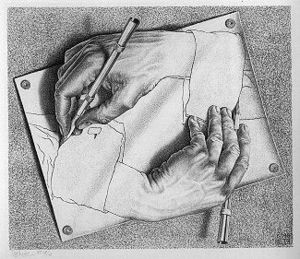As the sole Reader of the Book, you are entrusted with its meaning. Just so, according to Rumi, Adam was entrusted with the naming of all beings, and humanity was entrusted with all creation.
You are an ocean of knowledge hidden in a dew drop, a world concealed in [a few feet] of body.… So man is in form a branch of the world, but in attribute the world’s foundation.… Whatever appears within him is His reflection, like the moon in a stream.… The Prophet said, ‘He who knows himself knows his Lord.’
— Rumi (Chittick 1983, 64-5)
